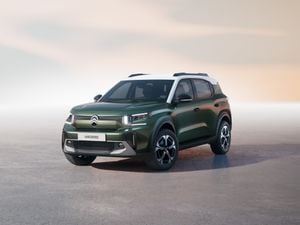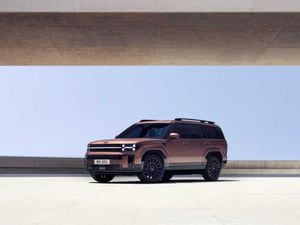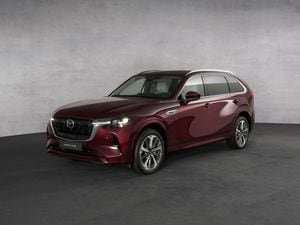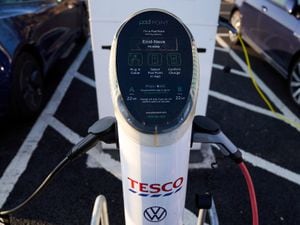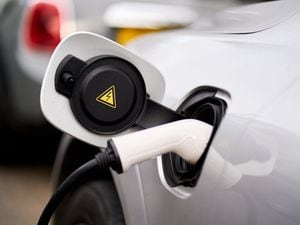West Midlands Mayor: Ditching diesel can help save Jaguar Land Rover
Speeding up the transition to electric vehicles is the key to reviving Jaguar Land Rover's flagging fortunes, the West Midlands Mayor has claimed.
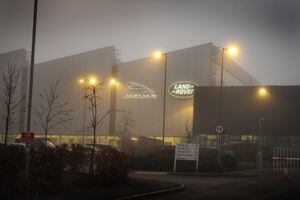
The automotive giant announced 4,500 job losses after sales plummeted by 4.6 per cent last year, amid a "perfect storm" of Chinese trade wars, falling sales of diesel cars and uncertainty over Brexit.
Now business leaders and politicians from across the region have set their sights on breathing new life into the firm, which has long been considered the jewel in Britain’s manufacturing crown.
And according to Andy Street the key to its future success relies on a swift move from manufacturing diesel cars to electric vehicles.
JLR has announced it will build its next generation of electric drive units at its i54 plant in Wolverhampton, which will be powered by batteries made at its new assembly centre in Warwickshire.
More coverage from the Express & Star
But many business leaders believe the company needs more support to help drive forward the change to electric, with 90 per cent of JLR vehicles powered by diesel.
The issue will be a major topic of discussion at the first meeting of the JLR Development Partnership in Birmingham on Monday.
Mr Street told the Express & Star: "There are certain things we cannot control, but what we can do is work to help JLR be as resilient as possible.
"Of course, this is not a standing start – we have been working with JLR over the last decade.
"But to make the transition to electric vehicles – and create jobs and boost investment – we all have an important part to play which is the purpose of the JLR Development Partnership."
Diesel cars were once hailed as the future due to their lower CO2 emissions and high mileage, but sales have plummeted since the VW Dieselgate scandal in 2015.
Industry data shows that only 750,000 new diesel cars were registered last year, compared to 1.06 million in 2017, while the fuel type's market share has slumped 10 per cent to less than one third over the same period.
Ministers have announced that diesel car sales will be banned in the UK by 2040, although JLR and other manufacturers have continued to insist that new, cleaner diesel engines can help cut pollution.
Monday's meeting will be co-chaired by Mr Street and Business Secretary Greg Clark. It will also involve business leaders, union officials, local MPs and council bosses.
Black Country Chamber of Commerce member Ninder Johal, said shifting more production to electric vehicles would have long term implications for the automotive industry.
"Jaguar Land Rover has to be prepared for what is undoubtedly a significant change," he said.
"The move away from diesel engines has been coming for a while now. As this gathers pace, there will be an impact on the supply chain, so it is important that JLR and other businesses involved are ready and able to adjust.
"Hopefully there will be a recycling of staff so we don't see more redundancies. These things work in cycles and when the market does pick up for JLR, we have to make sure that the right resources are in place for it to succeed."
Meanwhile union bosses have vowed to scrutinise the business case for the latest round of job cuts, which come 1,500 workers left the company last year.
Unite national officer Des Quinn said the Government's "demonisation" of diesel had damaged consumer confidence and contributed to JLR's troubles.
Labour's Warley MP John Spellar has accused ministers of embarking on a "damaging, self-promoting anti-diesel campaign".
He said: "Midlands car workers are paying the price of the Government grandstanding over the demonisation of diesel."
The majority of JLR's job losses are expected to come through a voluntary redundancy scheme, although workers at its West Midlands sites have been told that compulsory redundancies may be required if not enough people come forward.
An employee notice issued to JLR workers read: "Over the last ten years, our company has grown at an unprecedented rate for the automotive industry. We have become a truly global business. We can be proud of everything achieved.
"As we've grown over the past decade, with new product lines and international expansion we've sized our organisation in line with our plans and expectations of further growth; our headcount has more than tripled from the size we were in 2008.
"Today, the automotive industry – like many other industries around the world – is facing multiple challenges; for us these include China, diesel, CO2 and new emission regulations, among others. Consumer uncertainty is impacting demand.
"We must fundamentally transform to become more resilient to these challenges. We have to become more cost effective, to return to profitability after recent consecutive losses and to afford the vital investments that will safeguard the company's future."

